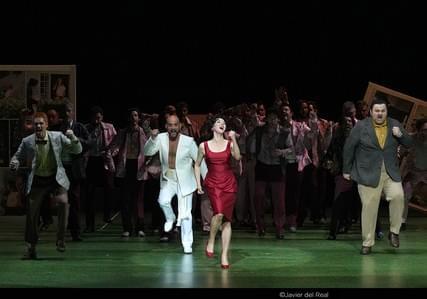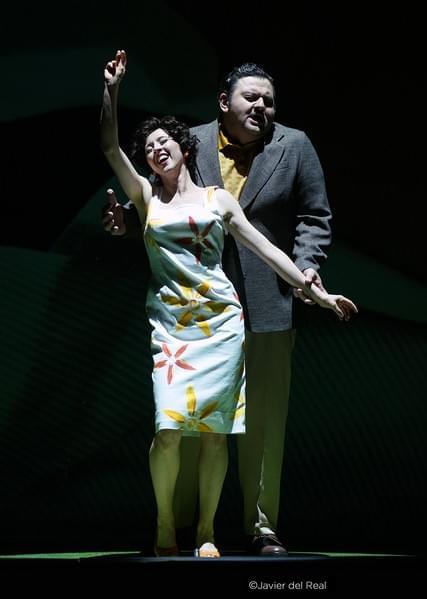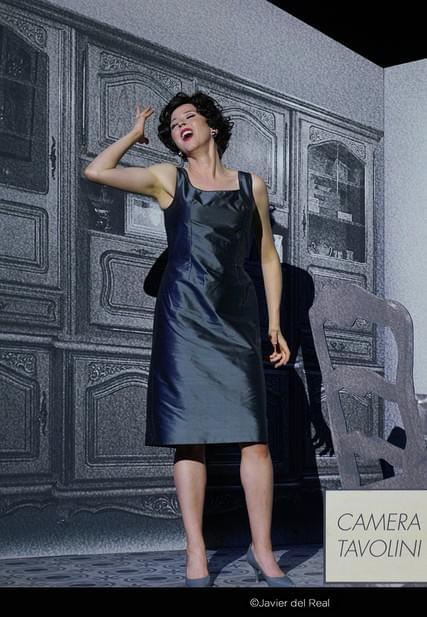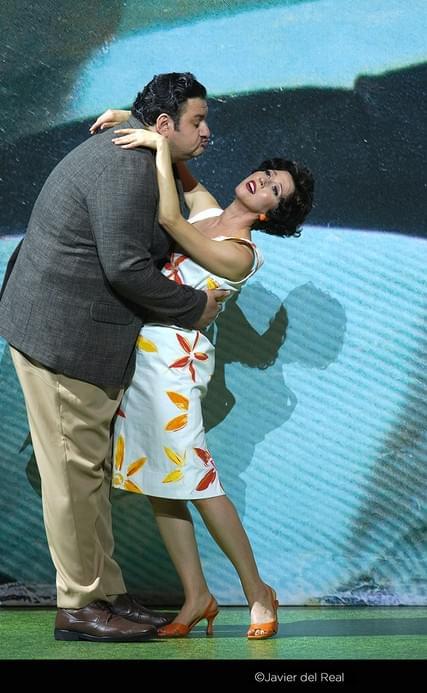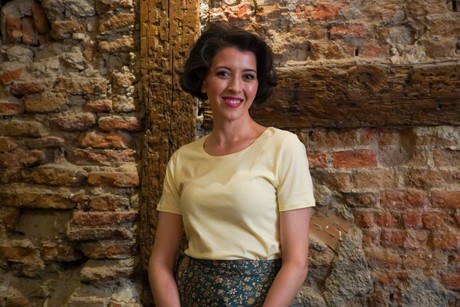Il Turco in Italia
Music by
G. Rossini
Cast
| Selim | Alex Esposito | |
| Fiorilla | Lisette Oropesa | |
| Don Geronio | Misha Kiria | |
| Narciso | Edgardo Rocha | |
| Prosdocimo | Florian Sempey | |
| Zaida | Paola Gardina | |
| Albazar | Pablo García-López |
Giacomo Sagripanti
ProductionLaurent Pelly
Set DesignerChantal Thomas
ChorusmasterAndrés Máspero
CostumesJean-Jacques Delmotte
About
Broadcast
This performance will be broadcast on Jun 09, 2023 on Arte Concert
Synopsis
"Il Turco in Italia" is an opera in two acts by Gioachino Rossini. The story centers around Selim, a Turkish nobleman who has been exiled from his home and is traveling in Italy. He meets a group of Italian characters, including the wealthy Corrado and his wife Fiorilla. Selim becomes infatuated with Fiorilla, who is intrigued by his exotic and mysterious nature. Corrado, on the other hand, is jealous of Selim's attention towards his wife and is determined to get rid of him.
As the story unfolds, Selim and Fiorilla engage in a flirtatious and playful relationship, but Selim's true feelings for her become clear. He expresses his love for her and is heartbroken when she tells him that she can never be his. Meanwhile, Corrado's jealousy continues to grow and he plots to get rid of Selim.
As Selim and Fiorilla's relationship becomes more complicated, comedic misunderstandings arise among the other characters. Selim's servant, Albazar, is also in love with Fiorilla and tries to win her over. However, his attempts are constantly thwarted by Selim and Corrado. In the end, Selim comes to realize that his feelings for Fiorilla can never be reciprocated and decides to return to Turkey.
The opera ultimately ends with Selim leaving and Fiorilla and Corrado reconciling their marriage. Though Selim's love for Fiorilla was not meant to be, his journey in Italy has helped him come to terms with his exile and find closure in his past. The work is marked by its mix of serious and lighthearted moments and its exploration of themes of love, jealousy, and self-discovery.



